Anastasia Balezdrova
On the threshold of 2014, the European Union (EU) and its member states are facing many different challenges. On the one hand, the European financial crisis and wave of refugees from the Middle East and North Africa on the other, and the election of members of the new European Parliament. The concerns that the crisis and the increased migration to Europe will intensify the political extremes in the EU are significant. At the same time, it is expected that an insignificant number of European citizens will take part in the elections as they feel that the EU cannot, or does not want to, solve the real problems.
 Journalist and long-time correspondent in Brussels, Veselin Zhelev, talks with GRReporter about the situation in Europe and Bulgaria.
Journalist and long-time correspondent in Brussels, Veselin Zhelev, talks with GRReporter about the situation in Europe and Bulgaria.
The Bulgarian government is clearly dependant on certain corporate and financial groups, and even on mafia. Is Brussels aware of this? Does it intend to take any measures?
Bulgaria and Romania are being monitored by Europe in terms of justice and home affairs, the main reasons for this being the organised crime and corruption. The European Commission is to publish another report on this monitoring in January. So far, the results of this seven-year monitoring have been very modest. The administration in Brussels is just reporting to the member states that it is doing something in order for the two countries to fill the gaps in their pre-accession preparation. The governments of these two countries in turn are pretending that they are making some efforts in the same direction, using the monitoring on the part of Europe for short-term internal political purposes, such as to indicate their opponents as an object of criticism or distrust on the part of Brussels.
This is against the interests of Bulgaria because it enables the old member states that oppose the expansion of the EU and the Schengen area to take advantage of the situation. None of the three regular governments nor the caretaker one have worked hard to stop the mechanism during the seven years of EU membership. I think that they consider it convenient. They think that it allows them to use Brussels against their opponents. To be honest, in a number of cases, such as the applications of Veneta Markovska and Delian Peevski, this mechanism acted as a "handbrake". I do not want to think how far the current government would have gone if this mechanism did not exist. Generally, it does not cure the chronic diseases in Bulgarian society, which you mention in your question.
The truth is that the so-called mechanism for cooperation and verification does not limit the Commission in terms of the measures, which it can propose to the member states in relation to Bulgaria and Romania. It had already applied the most painful of them, namely the suspension of the payments of the Euro funds, again while the Bulgarian Socialist Party (BSP) and the Movements for Rights and Freedoms (MRF) were in power. I do not exclude the possibility of us facing this measure again. However, let us see the report.
I would like to say something in a broader perspective. Over the past five years, understandably, Europe has been occupied with the crisis in the euro zone. This is an existential crisis and the developments in the new countries such as Bulgaria, Romania, Slovakia, Hungary and others have remained in the background. These countries are experiencing significant problems with the functioning of democracy, with the respect of fundamental EU principles such as freedom of expression, human rights, rule of law, for example, and they sometimes drastically fail to meet the EU requirements that apply to candidate countries. The European institutions responded to such events in Romania and Hungary but in terms of Bulgaria, their annoyance and neglect are fully apparent. Sometimes I think that Europe is sleepwalking, thus missing the beginning of yet another crisis, such as the bankruptcy of political newcomers like Greece, Ireland, Portugal, Spain and Cyprus.
Why doesn’t the political class in Bulgaria seem to be particularly concerned despite the protests that lasted for more than half a year?
I think that we cannot draw a general conclusion about the entire political class. This would be bad for those of its members who do not see, or pretend that they do not see, the growing gap between them and society. 48% or over three million voters in Bulgaria did not vote in the last elections. They do not have their representative in the so-called political class. This is a clear indicator of the representativeness, and therefore, of the quality of Bulgarian democracy. It is a cliché to repeat that it is a facade, but it really is a facade.
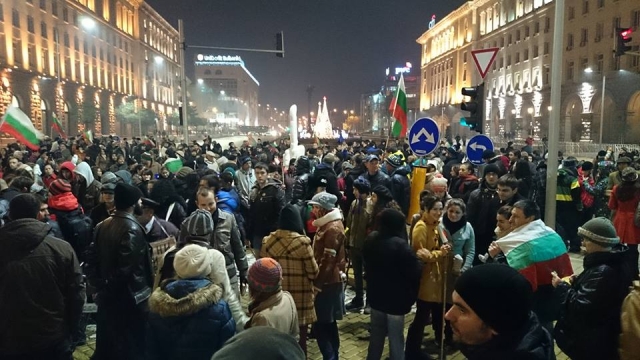
Photo: Vasil Garnizov
The problem is not that some textbook representatives of the current political class have climbed up the ladder of power. The problem is that the government itself has descended to their level. However, those over three million people who did not vote should assume much of the responsibility for this too. It seems that, out of the immortal habit of communist times, one thinks, "this country is not mine, the best thing I can do is to outsmart it or to escape from it, others should think about it, make decisions and assume responsibility". To change this attitude, we must first begin to love our country and ourselves, and start believing that it is ours and that we can change it. Then, what you call "the political class" might be embarrassed. Now it has nothing to fear, the toothless and bumptious institutions, much of the media and civil society are not disturbing it. I agree with those who want a majority electoral system in two rounds but I do not see which of the ruling parties will accept it.
The national parliaments of Bulgaria and Greece already involve extreme right-wing and left-wing parties. Do you expect that this situation will reach the European Parliament?
European Commission President Jose Manuel Barroso and Italian Prime Minister Enrico Letta have recently warned in a speech about such a high probability. The rise of various types of populism like extreme nationalism, separatism, xenophobia, racism and of fascist organisations such as Golden Dawn is a fact everywhere in Europe and this is one of the signs of the crisis. It shows that the crisis is not only economic and financial but it is also a crisis of the political model and values. These ideas and groups intervene where a vacuum of the trust in Europe has formed. They benefit from people’s anxiety, anger and despair.

Greece is a typical example due to the shock reforms, which it has had to experience. But despite the fact that they have got drastically poorer, Greeks are still richer than Bulgarians (see Eurostat) and I hope that they are beginning to understand the meaning of social insecurity which has been typical for their northern neighbours for 24 years already, since the fall of communism. In Bulgaria, the nationalist and anti-European discourse is due to the lack of a tangible positive effect of the EU membership. The Bulgarians suffered with dignity a lot of difficult reforms in order for the country to become an EU member. The Bulgarians experienced what the Greeks are experiencing now in the years after the introduction of the currency board in 1997. However, the expected higher standard of living and more equitable society have never materialized. Poverty, the mafia and oligarchs, organised crime and corruption are still here. Young and educated people are leaving the country en masse because they are seeing no prospects for development in this sick and perverse society. The country has lost nearly 2 million people who have emigrated since 1990. So, in such a situation, one may reasonably ask, "What was the meaning of becoming an EU member? Where is Europe? Why is it not helping us?" This doubt and lack of faith are the basis of populism. It quickly "infects" and involves many people because it offers easy explanations and simple solutions, which are accessible to all, namely to expel the foreigners, to sterilize the Gypsies, to nationalize the factories, to kick out the foreign investors, to break up the European Union, to unite with Russia, China, etc. Such ideas quickly "make the masses drunk" but the awakening from that "drunkenness" is painful because the aforementioned explanations and solutions are utopian. They usually serve a handful of political scammers who themselves do not believe in them.
Unlike Greece, Bulgaria has a class which is hampered by Europe and which benefits from this type of populism. I am convinced that this class would not hesitate to drag the country out of the EU if it had a chance to do so. It has always put its interests above national ones. These are the offspring of some of the former communist nomenclature, the former secret services. For them, it is vital to preserve Russia’s influence at the expense of Europe’s. Their interests are supported by the Attack party. It does not meet the cliché of a "far-right" party. This extreme nationalist anti-European party uses far-left rhetoric; it wants nationalisation, calls the foreign investors "colonists", glorifies China and Cuba and objectively works in favour of the interests of Putin's Russia in Bulgaria.
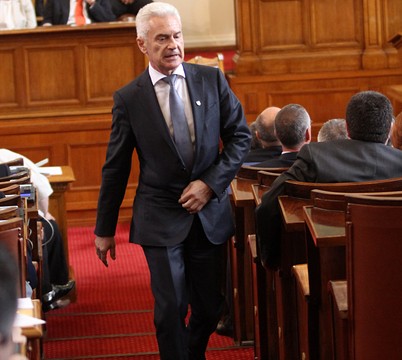
The rise of populism is a warning to the pro-European parties, whether they are left, right or centrist, that they have to forget their differences when it comes to saving Europe. Now the dividing line is not between the traditional left and right wings but between Europe and anti- Europe. This is a conceptual dividing line associated with values too and it is testing the political maturity of societies. In purely practical terms, if populist parties took enough seats in the next European Parliament, they would be able to hinder the adoption of legislation that would put an end to the crisis and overcome its consequences by stimulating employment and growth. And most of all, they would be able to hinder the European integration, without which there would be no guarantees that a crisis like this one would not be repeated. In addition, the EU would become increasingly irrelevant to the process of globalisation.
The strong performance of extreme populists in the European elections may provide them with good starting positions for the national elections, which will be held in Belgium next year and in the year after next in the UK, where the pressure for a referendum on the country's membership in the EU is not weakening.
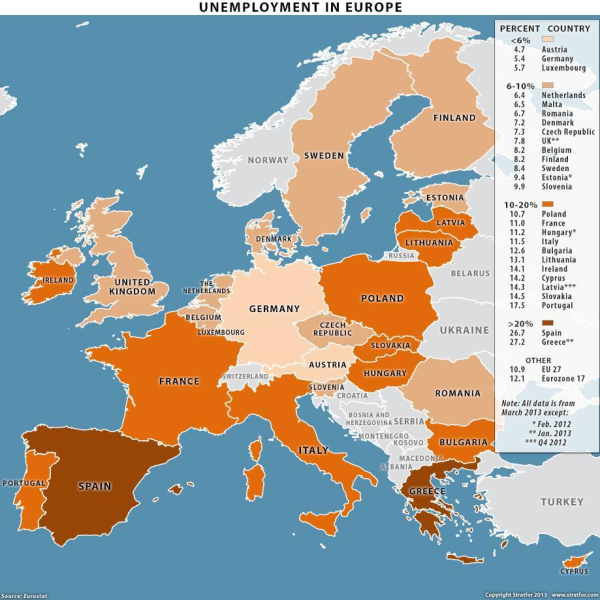
In other words, the most difficult phase of the financial crisis is probably close to its end. There is no existential threat to the euro, the markets have calmed down, there are weak signs of gradual recovery. However, the record unemployment rate of over 26 million people, or 12% of the labour force, remains as well as the significant imbalances between the member states. In Greece, the unemployment rate is 27.4% whereas in Austria it is 4.8%. These imbalances usually create social, economic, migration and political tensions. To reduce them, Europe needs to create the banking union and the mechanism for financial responsibility and solidarity, which is still in its project stage. However, this will be more difficult if the populists win more votes during the elections.
Voter participation in the European elections is usually low and analysts say that this is because the European institutions are not close to the citizens. Do the EU leaders understand the problem? Are any steps being taken in order to bring the institutions closer to the citizens of the member states?
As far as I can remember, the voting activity in the last European elections in 2009 was historically the lowest, 43% as compared with 45.47% in 2004 and 61.99% in the first European elections in 1979. The graph of voting activity shows a declining interest in Europe on the part of the Europeans. This trend cannot be explained only by the crisis because it was a fact during years when the economy was in good shape. We know the explanations related to the remoteness of the EU from the ordinary people, the bureaucracy of Brussels, its difficult and incomprehensible language, the heartless European officials and their remoteness from real life. They have grounds but this is the apparent, populist side of things.
The hidden side is that this Europe, with which we are dissatisfied, has been established by the member states and its weaknesses and incompleteness reflect their selfish interests. The shortcomings of the EU are often projections of short-term internal political considerations of the member states. The most recent example is the agreement of the finance ministers regarding the common mechanism for the restructuring of insolvent banks. The European Parliament is right to disagree with it, because the scheme to resolve banking crises is too complicated. In addition, it is clear that this is under the dictates of the main payer in the euro zone, namely Germany, which aims to calm down the German voters, stating that they will not pay for the bank failures of other EU countries.
We often see that the national leaders are generous in terms of words in support of Europe, when they are in Brussels, and that they justify their internal failures with Europe when they return home. A typical and pathetic example of this is British Prime Minister David Cameron, who is trying to raise his rating by promising the British people that he will protect them from the imaginary Bulgarian-Romanian invasion which will follow the opening of their labour markets on 1 January. This is a pathetic, helpless, populist behaviour for a conservative.
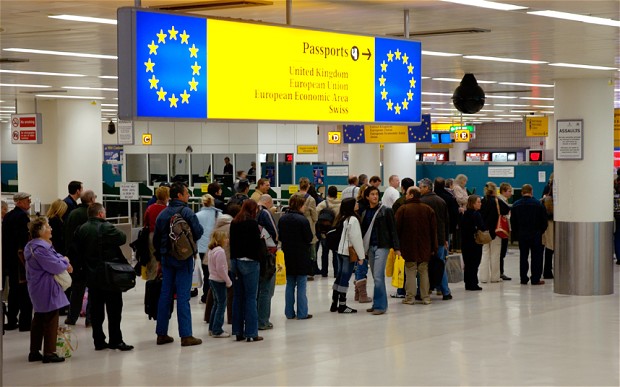
Such things are demoralising and discouraging. How should the people believe in Europe when their leaders do not?
The Bulgarian ministers are dying to visit Brussels, stand before the cameras and solemnly declare that they have had such and such conversations in which they "have protected the national interests." From whom do they protect it? Is it from Barroso? As if, Europe is a foreign power. As if, it is not our Union. As if it is a colonial metropolis which we have joined against our will rather than voluntarily. When these same politicians are involved in an election campaign they will shamelessly decorate themselves with European labels and will promise their voters "Euro-so-and-so" things. Do you think that the participation in the European elections will increase in the presence of such a trend? People do not go to vote when they know that they will have to vote for "blah - blah." If we want the Europeans to believe in Europe, we must not underestimate their intelligence and power of observation. The so-called "ordinary people" see and realize. Falseness is disgusting to them.
The low voting activity favours mostly populist parties that have hard and mobilised electorates. This was the case during the last elections and it is expected that the same thing will happen during the upcoming elections.
What are the chances of the European Socialists retaining their leading role in the European Parliament under the leadership of Sergey Stanishev who, at least in Bulgaria, is a symbol of corruption, of the connections of the government with the criminal interests and the old totalitarian regime?
I do not think the chances of the European Socialists in the elections depend on Sergey Stanishev. He is still an unknown and uninteresting figure in Europe. He cannot be compared to his predecessor, Dane Poul Nyrup Rasmussen, at all. The socialists are not playing a leading role in the current European Parliament. They are the second largest political group in it. They have the chance of becoming the first political force after the European elections in May 2014 and this will not be due to Stanishev but to the severe social consequences of the crisis. Europe has not been able to get to know Stanishev during his current mandate, not to speak of remembering him for his leadership. The interest of the international media in him is diminutive. He has nothing to say to the Europeans, except for the left-winged clichés, nor does anything in Europe depend on him.
The true face of the Party of European Socialists (PES) is now Germany’s Martin Schulz, President of the European Parliament. He is the party candidate to head the next European Commission. Two years ago, Schultz supported Stanishev’s application for leader of the PES because he was a young leader from a new member state. I am afraid that Stanishev has benefited from the chance of being the leader of a European political force neither for himself nor for Bulgaria. He has remained an impersonal chairman with functions servicing the nomination of Schultz.
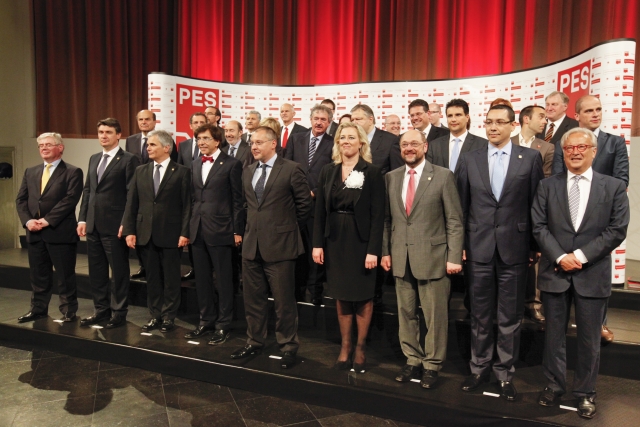
An increasing number of MEPs, however, fear that, instead of helping this nomination Stanishev can hamper it. Their greatest fear is due to the dependence of the Bulgarian Parliament and government on the extreme ultra-nationalists from the Attack party, because of its apparent anti-European rhetoric. They were shocked by the nomination of Delian Peevski as head of the National Security Agency and by the proposal that former State Security personnel should return to the ranks of the government. Equally compromising was the case when 59 members of the BSP voted for the proposal of the Attack party to extend the moratorium on land sales to nationals of other member states. This decision was unconstitutional and in breach of the accession agreement between Bulgaria and the EU. Even the MRF, the coalition partner of the socialist party, had opposed it and challenged it in the Constitutional Court. This showed Europe the face of the party led by Stanishev. It only claims to be European but a  significant part of it sticks to its past. I have heard that the European socialists look with quiet terror on the business of the Stanishev family, namely on the public relations company of his wife Monica Yosifova. Everyone can see on its website that its customers involve the Council of Ministers, five ministries and a state agency. The state is a customer of the wife of the leader of the ruling party. If this is not clientelism and conflict of interest then I do not know what it is. The royal wife is forming her revenue from the contributions of taxpayers. As if, we are a banana republic run by a family company, involving the left-winged European leader who fights for social justice. This is a political cartoon. Not to mention Monica Yosifova’s office in Brussels, the clients of which are being kept secret. Its scope of activities indicated in the Belgian Commercial Register includes "services relating to representation and influence, strategic advice." Last Thursday I asked Hannes Swoboda, Chairman of the Group of Socialists and Democrats in the European Parliament, if he was concerned about these circumstances. He replied, "I do not comment on the families of party leaders." Then he declared that the socialists "are fighting all the time against any kind of corruption." This is cynical. The European Socialists are also doing what the European People's Party did regarding the disgraceful acts of the Citizens for European Development of Bulgaria (GERB) party in Bulgaria - they are protecting their own "bastard" in the member state because of the upcoming elections in which he should win votes for them. It is a known fact that, after the crisis with Peevski and the Attack party, Swoboda wrote a critical letter to Stanishev, but the PES covered it up. This hypocrisy kills Europeans' confidence in Europe.
significant part of it sticks to its past. I have heard that the European socialists look with quiet terror on the business of the Stanishev family, namely on the public relations company of his wife Monica Yosifova. Everyone can see on its website that its customers involve the Council of Ministers, five ministries and a state agency. The state is a customer of the wife of the leader of the ruling party. If this is not clientelism and conflict of interest then I do not know what it is. The royal wife is forming her revenue from the contributions of taxpayers. As if, we are a banana republic run by a family company, involving the left-winged European leader who fights for social justice. This is a political cartoon. Not to mention Monica Yosifova’s office in Brussels, the clients of which are being kept secret. Its scope of activities indicated in the Belgian Commercial Register includes "services relating to representation and influence, strategic advice." Last Thursday I asked Hannes Swoboda, Chairman of the Group of Socialists and Democrats in the European Parliament, if he was concerned about these circumstances. He replied, "I do not comment on the families of party leaders." Then he declared that the socialists "are fighting all the time against any kind of corruption." This is cynical. The European Socialists are also doing what the European People's Party did regarding the disgraceful acts of the Citizens for European Development of Bulgaria (GERB) party in Bulgaria - they are protecting their own "bastard" in the member state because of the upcoming elections in which he should win votes for them. It is a known fact that, after the crisis with Peevski and the Attack party, Swoboda wrote a critical letter to Stanishev, but the PES covered it up. This hypocrisy kills Europeans' confidence in Europe.
One of the most serious problems in Bulgaria and Greece is the large influx of refugees and illegal immigrants and it has significantly intensified in recent months. Athens and Sofia insist that it should be resolved at European level. How do you evaluate the intentions of the administration in Brussels?
The administration in Brussels is doing what it has been authorised to do by the mandate of the member states and the European Parliament. It is promising more EU funds to deal with the refugee wave in the new programming period (2014-2020). They however will not solve all problems. So far, at the level of member states, the European solidarity with the countries along the southern border of the Union remains predominantly declarative. Almost no one wants to accept the refugees from the countries where they have entered Europe. It is also known that, usually, the ultimate goal of these people is not the poor South but the rich North Europe, whose capacity to help is not endless.
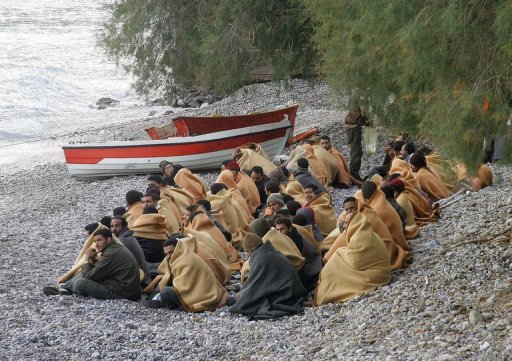
The last summit of the EU on 19 and 20 December 2013 has postponed the discussion on migration and asylum to next June. Apparently, no one wants to take clearer commitments regarding this sensitive issue before the European elections. During this time, it will not be decided by itself and will exacerbate. The crisis in Syria is not likely to be resolved either. Even if they sign a peace treaty tomorrow, the destruction there is of historic proportions and the refugee problem will probably last for years. However, if it destabilises one of Syria’s neighbouring countries (Lebanon is at the highest risk), then the wave will become even greater. The crisis in Syrian is not the only one. There are various crises across North and Central Africa too. NATO will withdraw from Afghanistan next year. The attacks in Iraq continue. The negotiations between Israel and Palestine have stalled. It seems to me that we have to live with the expectation of refugees.
It is clear that the problems they create favour the aforementioned extremist parties. If Europe does not find a working solution, it will face the risk of its southern flank becoming a sanitary cordon against migration from the Third World and the differences between it and the prospering part of the continent will deepen.
What is your forecast for Bulgaria for next year? Do you think it will hold early elections?
There will be European elections. If you mean parliamentary elections, the short answer is I do not know. On the one hand, the senior state institutions are totally delegitimized. The public confidence in the government is below 20%. In such a situation, early elections are the healthiest choice for a democracy. Today's rulers of Bulgaria do not show signs that they are particularly concerned about public confidence. This entirely corresponds to the political tradition of the BSP and recalls that it is the successor to a totalitarian party and that the old attitudes in it are still alive.
The government is making ridiculous attempts to cheer society with forecasts that economic growth will return next year and even more ridiculous Christmas gifts to the voters by reducing electricity prices through administrative pressure on the energy regulator and at the expense of the indebtedness of the National Power Corporation. The bill for this type of governing will have to be paid at one point. Even if there is a weak economic recovery, it is unlikely to reduce the dissatisfaction of the people against the background of the total ruin and poverty. Moreover, it will not restore the confidence that this government has irretrievably lost. And confidence is a fundamental resource of every government.
The BSP - MRF coalition will however stick to power as long as it can. Its chances to hold it have increased because two members of GERB have left it. The upcoming voting in the National Assembly will show whether this fact will save the government from its compromising and humiliating dependence on the Attack party, on the so-called "golden finger" of Volen Siderov, in order for it to have a quorum in parliament and whether this will allow it to have a majority in parliament.
There is no street pressure any longer either. The protests have subsided because their participants have found no leader; they have failed to establish an organisation with a clear programme and objectives. Nevertheless, this does not mean that frustration is gone. Social polls have categorically confirmed this. Another foul like the one with Peevski may raise it spontaneously any time.
It is important to understand the nature of this dissatisfaction. It is not against a particular type of policy. It is against policy in general. It is against the policy that exists in Bulgaria in the form of a cover of the oligarchy and corruption. This is not a crisis of a government and a parliament, this is a crisis of the political model, of the system. It needs to be fundamentally "reset". It needs an entirely new social contract between the parties and the voters. It needs "catharsis" followed by "disinfection" of the institutions. In particular, the investigation service and the prosecutor’s office must be cleaned with bleach, figuratively speaking. There must be depoliticised administration appointed by competition and with stability guarantees. There must be independent regulators in the fields of energy, communications and competition. The present ones are cartoons. Someone must finally break the incestuous union between the state (regardless of who is in power), a bank and some media.
The only elective political force that is declaring such intentions is the reformist bloc. Unfortunately, it is too weak to implement them.
In theory, it could implement them in a coalition with GERB but this would be a morally and politically problematic union if GERB does not repent for the mistakes it made while it was in power and if it does not take clear action to show the public that it has realized these mistakes. Do not forget that GERB was willingly benefiting from the services of that bank and that media group which are in a notorious symbiosis and which are now serving the current government. Do not forget that while GERB was in power, the police and the prosecutor’s office were used as political "batons".
In my opinion, the chance for a decision lies in the fact that policy in Bulgaria is highly personalised. It is a policy of figures and personalities rather than of ideas. This means that if certain leading politicians find the courage and responsibility to withdraw, at least temporarily, the reformist majority is possible. If the people in Bulgaria see that there is a viable alternative for a change, they will go back on the streets and will request it. Let us remember Videnov’s winter. Then the BSP had a majority in parliament and could easily form a new government. Nevertheless, it did not dare to do so because it was afraid of the people's wrath.